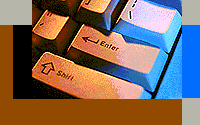Critical Technological Literacy

In her recent book, Technology and Literacy in the 21st Century, Cynthia Selfe analyzes the ways in which "the national project to expand technological literacy has not resulted in a better life or more democratic opportunities or an enriched educational experience for all Americans, as most of us might wish. Rather, it has served to improve education only for some Americans" (7). In offering this careful analysis, Selfe shows us how technological literacy initiatives reflect problematic values and support the agendas of those who wield economic and political power. She also provides insight into the ways in which technology can become "invisible" and thus its consequences hidden from our daily view – as I have also suggested in this webtext.
To counteract these problems, Selfe proposes a "critical technological literacy" that promotes a "reflective awareness" of "the complex set of socially and culturally situated values, practices, and skills involved in operating linguistically within the context of electronic environments, including reading, writing, and communicating" (148). This kind of critical technological literacy should enable citizens to "carefully analyze, to pay attention to, the technology-literacy link at fundamental levels of both conception and practice" (148). Selfe goes on to offer suggestions for how teachers might shape their uses of computer technologies to foster such a critical literacy. Elsewhere, she and Richard Selfe provide detailed analysis and advice for creating technology-rich teaching environments that foster this same critical awareness (Selfe and Selfe, in press).
Selfe's incisive analysis of technology and literacy as political and ideological reinforces the point I have made in this webtext about the profound impact that technology – and especially powerful new technologies for writing, such as computers – can have on our understanding of ourselves as beings-in-the-world. In this sense, she provides an important set of directives that can be incorporated into the kind of pedagogy I am proposing here. But I would want to expand her critical focus beyond the political, economic, and ideological implications she identifies to include the consequences of our uses of technology in terms of our existence as beings in larger ecosystems and global communities of other humans and nonhuman beings. In other words, I would want to incorporate into Selfe's critical technological literacy a nondualist conception of the self.
Teaching With Technology for a Sustainable Future | Works Cited